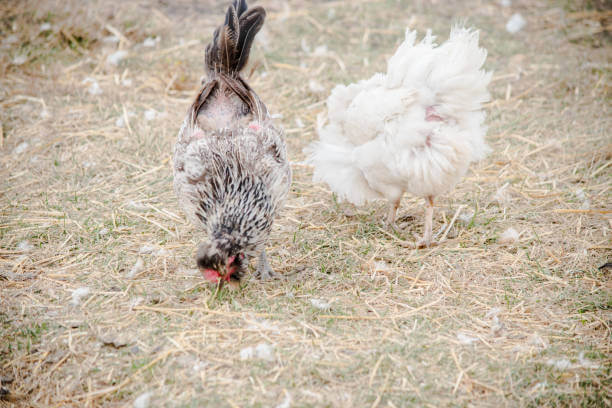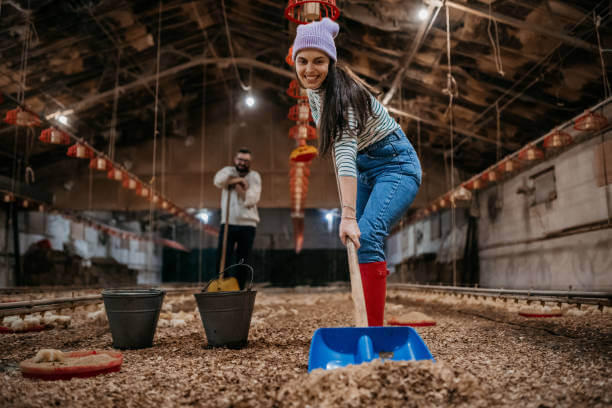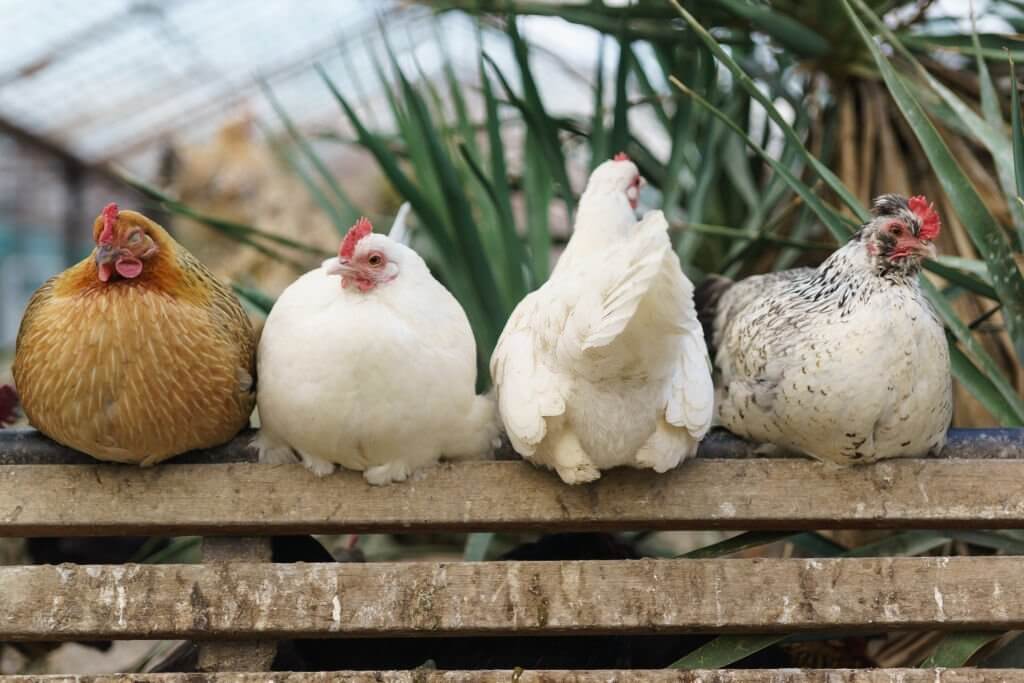If you've ever shared your life with backyard chickens, you know they're not just egg-laying machines.They're also amazing creatures with personalities and quirks, not to mention their own set of challenges. One such challenge is chicken molting. It's a natural process that can leave your feathered friends feeling a little bawkward. Fear not, fellow chicken enthusiasts! We're here to eggsplain everything you need to know about molting and how to help your chickens during this trying time.

What the Cluck is Molting and at what age do chicken molt?
Molting is a normal process where chickens shed their old feathers and grow new ones. This usually happens annually, typically in the fall or early winter, and can last anywhere from a few weeks to a couple of months.
Chickens typically begin to molt, or shed and replace their feathers, around 12-18 months of age.Molting occurs in a specific pattern, starting at the head and neck, then moving down the back, breast, and wings. Finally, it reaches the tail feathers. During this time, you may notice your chickens looking a bit ruffled. But don't worry! They'll soon be back to their clucky selves in no time.

Laying Low: Egg Production and Molting
One important thing to note is that egg production often decreases or even stops during molting. This is because the chicken's body is focusing its energy on growing new feathers. So, don't be eggsasperated if your egg count takes a dip during this time.
How to Help Your Chickens Through Molting: The Nitty-Gritty
Now that we know what molting is and what to expect, let's discuss how to provide some eggstra care for your chickens during this time. Here are a few tips to help them wing it through molting:
- Protein, Protein, Protein!
Feathers are made up of keratin, a protein. So,the best chicken feed during molt for molting chickens should be a high-quality, protein-rich diet. Boost their protein intake by offering them a specialized molt-mender feed, or supplement their regular feed with high-protein treats like mealworms, sunflower seeds, or even scrambled eggs (yes, it's okay!). This will help them grow strong, healthy new feathers.
- Keep Stress at Bay
Molting can be a stressful time for chickens, and stress can further slow down feather growth. Minimize stress by maintaining a consistent routine, avoiding unnecessary handling, and providing a safe, secure environment for your flock. Therefore, installing an automatic chicken coop door that helps keep chickens safe from predators really goes a long way! A calm chicken is a happy chicken, and a happy chicken will molt more smoothly.
- Break Out the Dust Bath
Dust baths are essential for chickens, as they help keep their skin and feathers clean and healthy. During molting, dust baths are even more important. Make sure your chickens have access to a dust bath area filled with materials like sand, dirt, and diatomaceous earth. This will help reduce itchiness and irritation as their new feathers come in.
- Watch Out for Pecking Order Problems
The pecking order can become more intense during molting, as chickens may be more irritable and prone to picking on each other. Keep an eye on your flock and separate any birds that are being overly aggressive or bullied. This will help maintain peace in the coop and reduce stress on your molting birds.
In Conclusion: Be Patient and Supportive

Molting can be a trying time for both you and your chickens, but with a little patience and TLC, you'll help them get through it with flying colors. By providing proper nutrition, reducing stress, and taking care of their overall well-being, your chickens will soon be back to their usual, eggsquisite selves.
So, when your chickens molt, remember to wing it together and give them the support they need. Happy molting!




Leave a comment
All comments are moderated before being published.
This site is protected by hCaptcha and the hCaptcha Privacy Policy and Terms of Service apply.